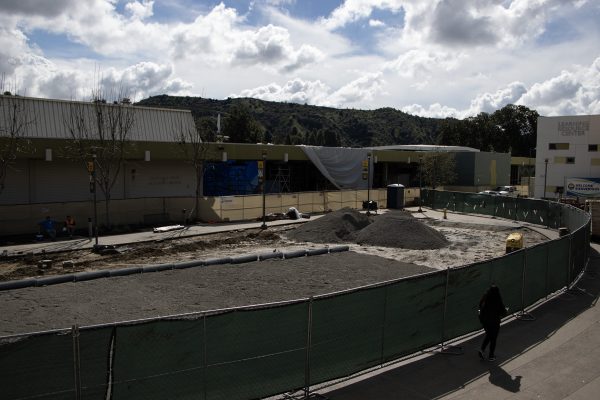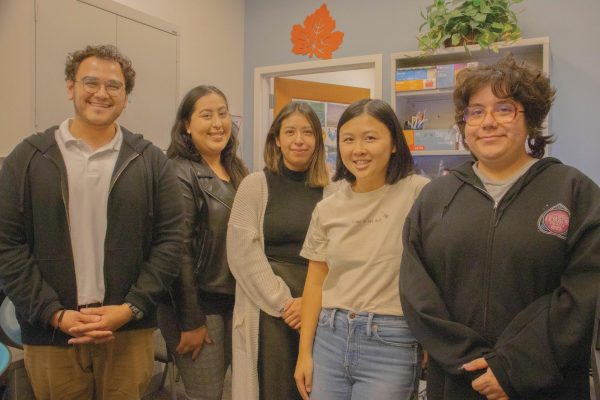Justin Valero Aims to Make a Difference
Justin Valero, who is campaigning to become California’s 57th District Assembly representative, held a meet and greet at his home in Whittier on Saturday. The purpose of the meet and greet was to provide an opportunity to tackle the problems at hand with the public. El Paisano was luckily able to sit down for a one-on-one chat with Valero.
The 27-year-old Valero has lived in the 57th District his entire life, residing in Whittier. He is now aiming to provide better opportunities for the people of Whittier and the surrounding cities.
One of Valero’s goals is to get state officials to recognize that the education vocational schools and community colleges provide are just as important as four-year universities. He also wants more funding for vocational schools and community colleges.
“More-and-more we’re having what are known as ‘non-traditional students, where students are typically older than 23, 25, part-time… but now we’re getting kind of a combination of that, and in larger numbers,” Valero explained. “So this idea of the ‘non-traditional students’ is actually pretty conventional, it’s becoming the norm. I think we’re going to have to stop saying ‘non-traditional students’ soon because it will be the ‘traditional’ student.”
Valero feels the “traditional” route of going from high school straight to a four-year university isn’t really in the realm of possibility for everyone.
“The problem is that the way that academia is set up, it really is set up for you to get out of high school, go straight into a four-year university, load yourself up with a ton of debt, move somewhere, do whatever experience you want to go do,” Valero continued. “But the problem is that that’s catered to an upper-middle class, upper-class tax bracket. That’s essentially what it’s made for. I don’t think that was the intention, but that’s who can actually pull it off.”
To fix this problem and get more attention on vocational schools and community colleges, Valero wants to expand Cal Grants.
“We want to be able to put in something called Cal Grant Expansion. We want to put in an expansion of Cal Grants in terms of how Cal Grants are done because we tend to treat community colleges and vocational training like they are second-hand educations,” Valero said. “I think we’ve basically given this bull-pucky story that the only way you get validation in life is through a four-year degree, and that’s not true.”
When asked what some of his other main focuses are, Valero mentioned health care being next on his list.
“We need to be able to have coverage that is affordable and accessible for everybody. We talk about accessibility in terms of plans, but we also need to talk about accessibility in terms of actual treatment.”
The last major issue Valero hopes to tackle is criminal justice reform. He feels there are many young people who are charged with crimes but are not getting the treatment they actually need.
“We need to make sure that a 19-year-old kid who gets busted for having some pills of ecstasy, or gets busted with a bag of [marijuana] he is not supposed to be having; that kid goes to alcohol & drug rehab,” Valero explained. “If the kid has, you know, a cocaine problem, the kid belongs in rehab, he doesn’t belong in prison.”
Valero feels that sending these young, non-violent convicts to prison is not teaching them a lesson, but rather setting them up to be continued convicts. He provided statistics to back his belief.
“[Jail] is criminal school! All it does is make you learn the tricks of the trade and the studies show that the minute you walk in [to prison], you’re 60% more likely to come back.”
Valero thinks rehab should be the more common alternative for these young offenders.
“You step into a rehab center… less than 30% come back, and it’s the same group of people; it’s drug offenders. The thing is that if you’re able to help someone get a house, help someone get a job… very quickly that need for dependency and that motivation [for drugs] tends to go away. We think of addiction as just chemicals, as ‘oh, you must be into the chemicals’… No, it’s about connection. You’re trying to replace some sort of human connection, social connection… so you use drugs instead.”
While Valero seems to be focusing on issues for the young, they are not an age group that goes out to vote often. I asked what he would say to the young people of the 57th Assembly district to get them out to vote.
“Voting at the local level is the most powerful you can be… Your vote counts less in a presidential election; your vote counts a little bit more in a congressional election… Now you go down to a local level… Your vote goes from 1 in 150 million, to 1 in 230 thousand. Your vote becomes that much more powerful, so you can actually effect an election,” Valero said. “Elections have been won at the local level by five votes, by one vote. If it’s something you believe in and if this is a message that people at Rio Hondo think is a good idea and they like it… The thing is we have to have people go out and vote.”






